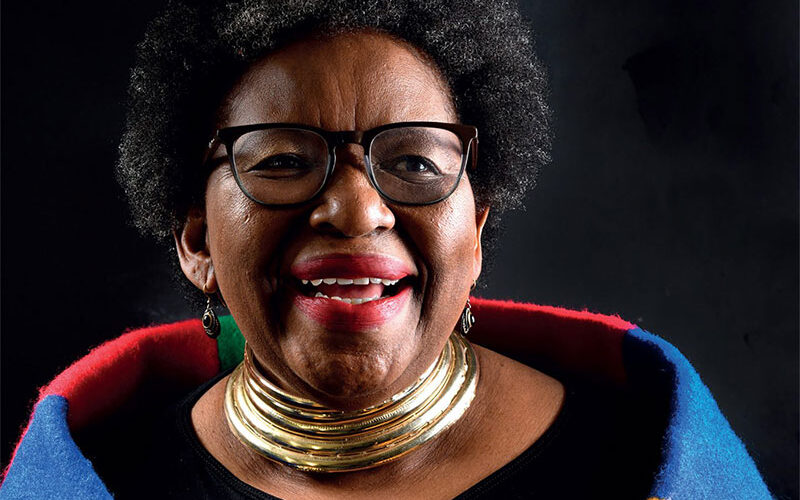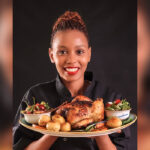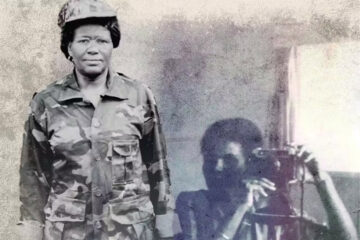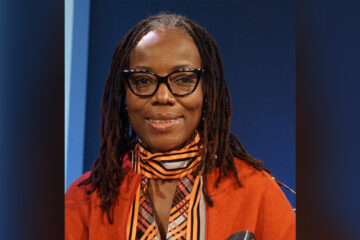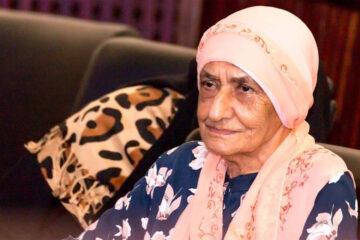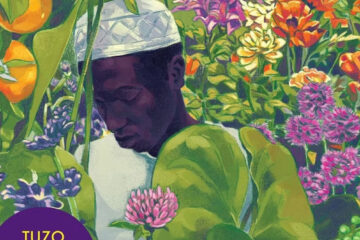IT has been 40 years since Dorah Sitole walked into Canned Food Advisory Service, the marketing division of a container and packaging company called Metal Box, to interview for the position of cooking demonstrator. Her husband told her about the job opening, saying, “I don’t know anyone who cooks better than you.” That moment would launch her groundbreaking career in food and Sitole’s new book is a reflection on this long career that has shaped the path of South African food culture.
“It’s 40 years of my professional career,” says Mam’ D, as Dorah Sitole is affectionately known, a week after the book appeared on bookstore shelves. The doyenne of food in South Africa says that before the successful job interview in February 1980, she was simply an enthusiastic cook who enjoyed feeding her friends and family.
“When I walked into that office, I didn’t think I was going to get the job because I had never done home economics at school and I didn’t know that there was a career in food. But I was a good cook that liked trying out recipes and attending cooking demonstrations.
“At the time of the interview, I was a coding clerk for a market research company, which I had been doing for seven years. So I was pushing a lot of papers at my desk, which wasn’t terrible work but I think I found it boring. So I took my notebook, which had all my recipes and was covered in oil because it was very well-used, and I nervously showed up for the interview. I was told that me being able to cook was enough and got the job.”
Sitole was hired to host cooking classes and demonstrations for high school students and mainly Black women looking to improve their cooking using canned food. “About a month or two into doing the demonstrations, I realised that I loved it,” she recalls. She continued adding to her skills and qualifications, completing a baking and a chef’s course, and obtaining a diploma in public relations. “I just realised that that’s where I was headed and those were the skills I thought I needed.”

Elevating household food
Part of Sitole’s immense influence has resided in her ability to take food and meals enjoyed by working and middle-class Black households, and elevate and celebrate it by showcasing it on the various platforms available to her. For many Black people, it was an affirmation that what we loved and/or what we could afford to eat was worthy of showcasing, too. That it was good, just like the cuisines and meals of other countries and communities that are elevated in food culture.
This was particularly important during apartheid and the early days of democracy, when Black people weren’t considered a community worthy of being catered for. “When people spoke of South African food, it was never really food eaten in Black or township homes. We would hear about bobotie, melktert and koeksisters, but there was never any morogo or amabele,” she says, referring to the curried mince dish, milk tart and sugary plaits that were given preference over wild spinach and sorghum.

“So I think my greatest impact was during my years at True Love, where I was able to work with brands such as Tastic, Rainbow Chicken, Snowflake and Woolworths who for many years didn’t really speak to Black people.”
In many ways, Sitole was the original food influencer. It is an industry that has grown in leaps and bounds since she started doing twice-a-week demo classes as True Love magazine’s food editor.
A life story in food
Her new book, the third book for the acclaimed author, tells the story of her life through food.
“When I was growing up, we were always hungry. There was just no food. I also don’t know if I was just born with a genetic love for food, but I really love food. I look at my grandchildren and they can eat whatever they want, whereas I never had that for the first two decades of my life. Even after I finished school and left Nigel, where my grandparents lived, to move to Dube in Soweto with my mother, there was still no food,” she says.
“In Nigel, we were really just scraping, aside from a small vegetable patch that my aunt had, which meant we could have spinach in the summer. In Dube, while we could buy bread and milk, my mother was still the sole provider and so she didn’t have much money. So what money there was had to stretch, and that’s why on Tuesday, Wednesday and Thursday we would have pap and the mixed legume stew that’s in my book. We didn’t have plenty of food, but there was something to eat. So when I started earning my own money, I started working at round 18, I began experimenting with different recipes and I started cooking more, which made me fall in love with food because finally I could eat whatever I wanted.”



